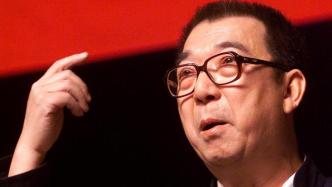
On October 11, the famous director Guo Baochang died of illness in Beijing Puren Hospital at the age of 83. His wife, Liu Gege, issued an obituary on the 12th, saying, "In compliance with my husband's instructions before his death, the funeral will be simple and no farewell ceremony will be held. I would like to express my gratitude to all the relatives and friends who cared about him with this obituary. I cannot express my gratitude enough, and I have to pay my respects again and again."
The legend of a generation suddenly came to an end. When the news came, although I was prepared, I was still shocked.
In fact, just around Labor Day this year, the drama "The Mansion Gate" produced and performed by the National Theater of China celebrated its tenth anniversary. On the night of May 1st, after watching the play at the Mandarin Theater at No. 277 Guang'anmenwai Street, the author excitedly gave Baoye (Guo Baochang is respectfully called "Baoye" in the circle) his personal WeChat ID It is also the pinyin of these two characters "BaoYe") to send messages. "After watching the performance on the drama stage, I truly understood "The Gate of the Mansion" that Mr. Bao had been dreaming of completing for most of his life - why Bai Jingqi was born in the sixth year of Guangxu and lived to be eighty-six years old... He wanted to use that piece when he was ready." The plaque of "Baicaoting Bai Family's Laohao" is a coffin board with profound meaning as the final words of a lifetime."
Unexpectedly, the old man replied immediately, "I have been in poor health recently. I wanted to ask you to have a drink with me, but I can't. If we have a chance to meet and chat in the future, I will make up for this drink."

Stills from the drama "The Mansion Gate". Photography by Cao Zhigang
Friends who are familiar with Guo Baochang know that Mr. Bao lived a free and easy life and was fond of smoking and drinking. Speaking of which, the origin of the "drink" between the author and him was in the midsummer of 2021. Guo Baochang published two books in succession at Life·Reading·Xinzhi Sanlian Bookstore, "All Big Characters" and "The Great Game: What's the End of Peking Opera?" What’s so good about it.” The cover of the former is quaint: with blue-grey steps, vermilion doors, and glazed roof eaves, it is clearly a square "house gate"; in the photo on the cover of the latter, an old man and a young man are performing the traditional Peking Opera comedy "Double Back Stool" 》. The bridge of the old man's nose is smeared with white powder, and it is Guo Baochang himself who is playing the clown. A small stool was tied to the young man's head, but it was his little grandson. It is both solemn and humorous, full of a playful sense of humor.
It was these two books that gave me the opportunity to have a face-to-face interview with Guo Baochang. When chatting with Mr. Bao, you will definitely not avoid the 2001 TV series "The Mansion Gate" directed by him. In addition to being fascinated by the majestic and ups and downs of the plot and the star-studded cast, the audience is also curious about the intertextuality and observation between this drama and Guo Baochang's own life experience.
Mr. Bao was born in 1940. He was sold into a wealthy family at an early age. He has gone through many vicissitudes of life, read all about the world, and met many strange people and strange things. He is not only a great director with profound skills, he has directed more than 30 film and television dramas, and won the 29th Huading Award Lifetime Achievement Award in 2020; at the same time, he is also a writer with Beijing accent and Beijing accent. The script of "The Mansion Gate" is based on his own family story Created as a prototype, a wonderful pen describes all kinds of emotions in the world.
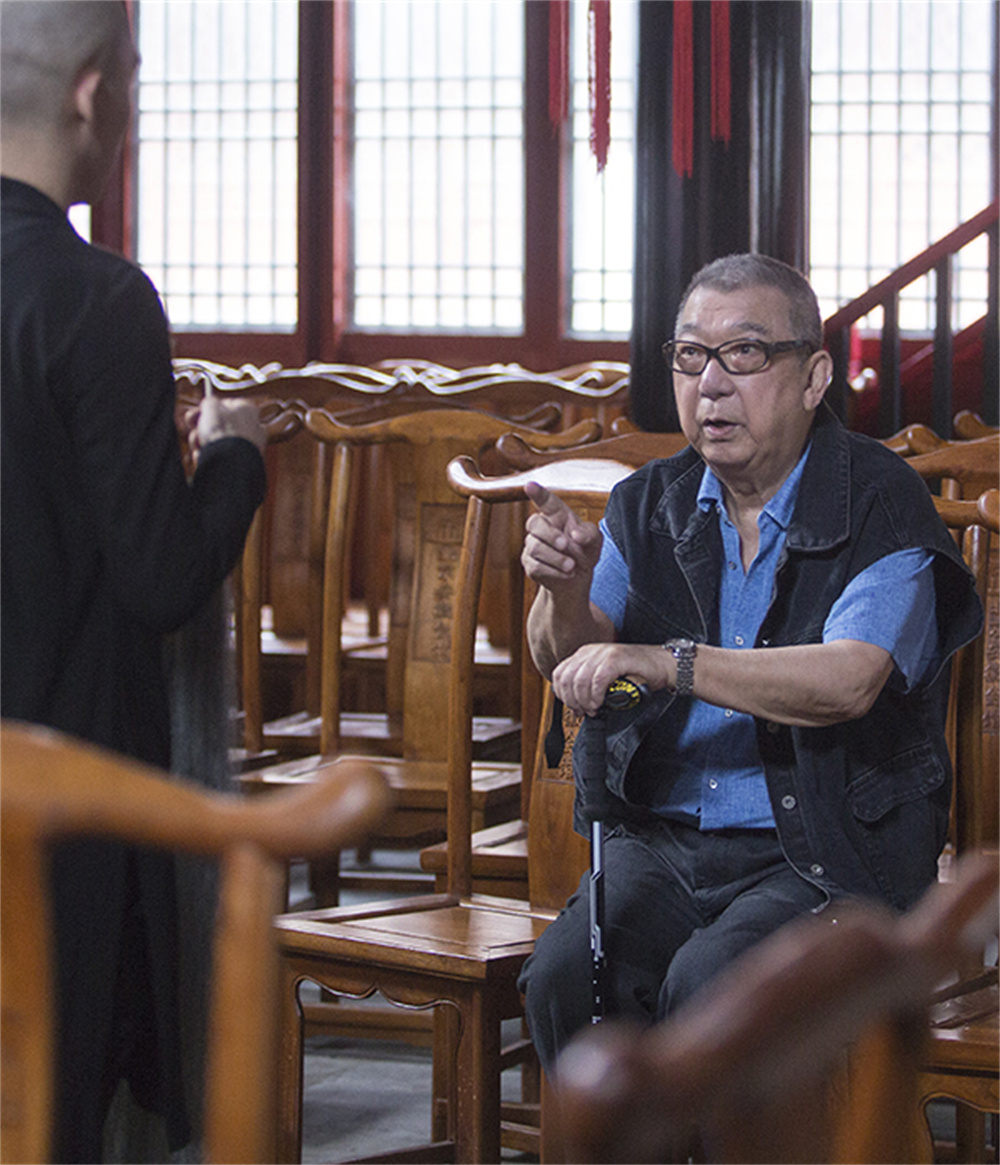
Guo Baochang
Guo Baochang's appearance in film and television dramas has long been known to the world. As a 1959 graduate of the Directing Department of the Beijing Film Academy. After the reform and opening up, he worked as a director and screenwriter at Guangxi Film Studio and Shenzhen Film Studio. He created the movies "The Mist of the Goddess Peak", "Latent Shadow", "The World of Fog" and "A Dream of the Girlfriend", as well as the TV series "The Mist of the Goddess Peak". Mansion Gate", "Huaiyin Hou Han Xin", "The Big Boss Cheng Changgeng" and many other film and television works.
What is particularly worth mentioning is that as the "big brother" of the fifth generation of directors, he was very supportive of the younger generations in the 1980s. When he worked at Guangxi Film Studio, he supported directors such as Zhang Yimou and Chen Kaige to launch works such as "One and Eight" and "Yellow Earth". This is also the reason why Zhang Yimou, Chen Kaige, Tian Zhuangzhuang, etc. did not choose roles and rushed to star in them during the filming of the TV series "Mansion Gate".
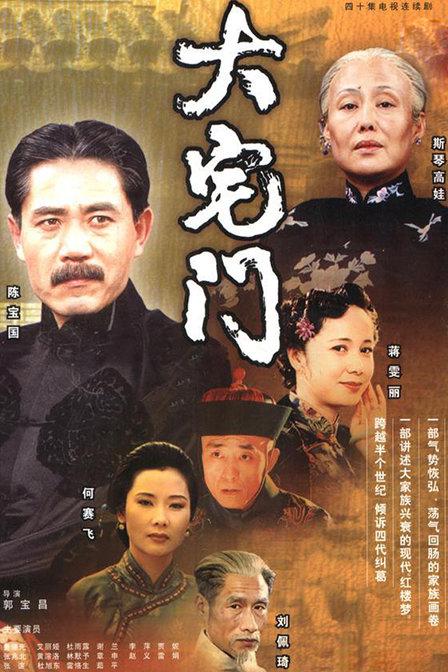
"Mansion Gate" poster
In addition to filming, in life, Mr. Bao is obsessed with Peking Opera. He said that he started listening to opera at the age of five, and has been fascinated by it for more than 70 years. He has also studied it all his life. As he grows older, he regards "letting young people understand and fall in love with Peking Opera" as his greatest wish. The book "The Great Game: What's So Good About Peking Opera" is, in a sense, Guo Baochang's "aspiration" work.
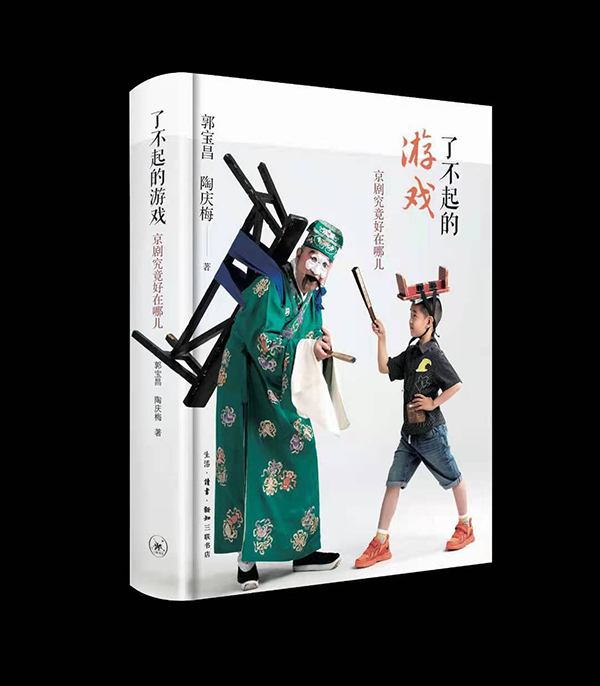
Book cover of "The Great Game: What's So Good About Peking Opera"
If in 2017, Guo Baochang and Li Zhuoqun co-directed and directed the Peking Opera version of "The Mansion Gate", it was a successful practical effort by him to bring this art back to life today after years of love, thinking and research, then "The Great Game" is a book in which he condensed his decades of thinking and practice into a book, trying to use rational thinking as a basis and vivid and straightforward expressions to explain clearly to today's young people "why Peking Opera is good, and What’s so good about it.” For this reason, Guo Baochang summarized the art of Peking Opera in these words in his book, "It's all kinds of things, all kinds of strange things, full of brilliance, and a game mentality" - this word "game" is the summary of his decades of thinking and gives it to everyone. The key that opens the door to the art of Peking Opera.
Most people who have watched the TV series "The Mansion Gate" will still remember the "first impression" of Peking Opera elements in the film. Guo Baochang recalled that he had an impression from listening to theaters since he was a child. For example, to create a tense atmosphere in a movie, it must be a band, starting with strings, and creating many complex chords, making you feel eerie. The Peking Opera band is very strange. The percussion instruments are all "noise". Western bands also have percussion instruments - timpani and big cymbals, but they are all musical sounds. "Peking opera actor Du Jinfang went to Paris to perform in plays such as "The Legend of the White Snake" in the 1950s. The local media published an article praising it the next day, with the title: 'Noise Conquers Paris.' The French had never heard of it, and they couldn't understand why the noise was so great. Can it be so beautiful? This is the wisdom of our ancestors. This art feels too advanced - you can put "noise" together in this way to form the sounds of all things in the world, showing thunder and rain, thousands of armies, and rivers The lake and sea represent the rumble of cannons, and even drums can be used on stage to express the sound of farts, which is unique among all stage arts in the world."
The sound of Peking Opera is not only audible, but also visible, which is unique in the world. What made Guo Baochang think about it was, "Are these precious things in opposition to the current film and television art? Can these noises enter the film and television scenes? This is a big topic." He first thought of the gongs and drums in Peking Opera. , "All the gongs and drums in Peking Opera are gongs and drums sets. There are hundreds of gongs and drums sets. Even if the musicians don't know the plot, they can hit a drum beat correctly. To create a gloomy atmosphere on the stage in Peking Opera, just one drum key is enough. . This blow could shake the table, and the whole place fell into silence."
During the filming of "The Mansion Gate", Guo Baochang thought that if he didn't practice, he might not have a suitable opportunity in the future. Moreover, composer Zhao Jiping's music itself uses a lot of opera elements, so it is not a bad idea to boldly use the gongs and drums of Peking Opera. Guo Baochang hired the Peking Opera Theater Band to record a batch of gongs and drums. After recording, find two episodes to insert and give them a try. "For example, when Bai Jingqi was born, it was said that he didn't cry when he was born, he just smiled. When the name 'Bai Jingqi' was written with a brush, the soundtrack was 'Four Hits of the Head' - 'Cang, Cang Lingqi, Cang Lingqi, Cang' ! 'Four gongs (percussion sounds), this is used for generals and main characters in Peking Opera. I used it on the name of 'Bai Jingqi' and the birth of the protagonist. From the first character From the time I started writing to the end of writing, I used such gongs and drums to emphasize that the most important character in the whole play has appeared. The other one is Ji Zongbu (played by Zhang Fengyi). When he stepped in as the teacher invited by the Bai family, I also gave him 'Four hits on the head'."
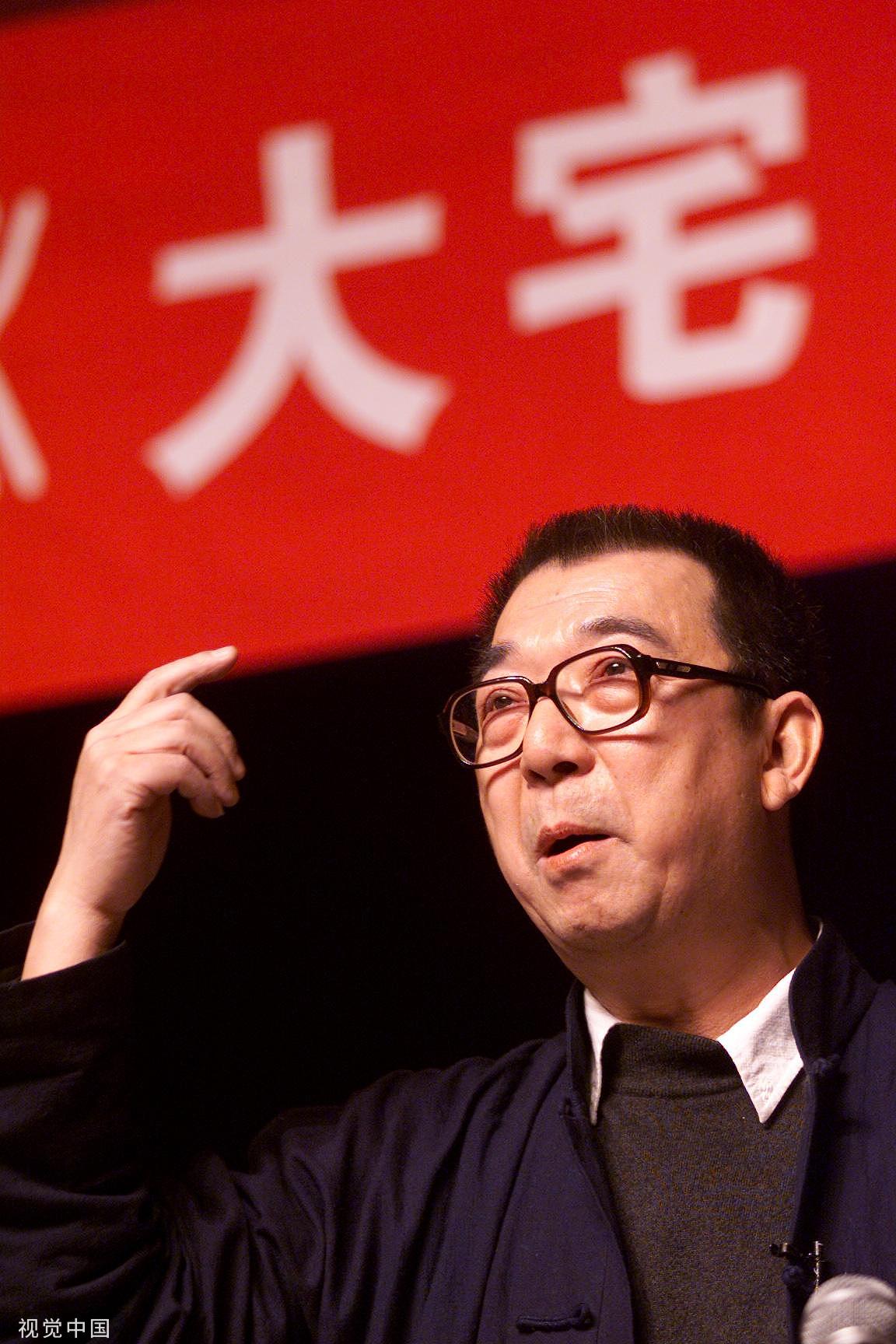
May 19, 2001, Beijing, Guo Baochang, chief director of "Mansion Gate". Visual China Map
Although it was carefully designed, Guo Baochang was particularly unsure at the time: Can ordinary people accept such "noise" in movies and TV shows? After finishing two episodes, he said to the sound engineer, "Hey, buddy, find two people, the aunties on the street are the best, show them these two episodes." When the internal preview results were reported back, everyone said It’s good to watch, and no one found anything awkward. The audience was not aware of the “noise” interference at all, and was completely immersed in the development of the plot. "This gives me the foundation. From this, the Gongs and Drums Sutra has been consistently used throughout the 40 episodes of the drama. After the TV series was broadcast, the insertion of the Gongs and Drums Sutra was praised by too many people as an innovation. Many friends from the Peking Opera Theater saw When they reach me from afar, they shout: Guo Baochang! Kuang Qiqiqi (slow gong)."
Different from the banyan of "The Great Game", "All Big Characters" can be said to be Bu Baoye's autobiography. "The little people abandoned by history are all big characters who play the joys and sorrows." He used these "little people" with different talents to connect the twists and turns of his life of more than 80 years, and continued to tell the story of "The Gate of the Mansion". s story. There is a special section in the book about Yu Hua, the wife of Tian Feng, his mentor at the film school. As a post-40s generation, Guo Baochang entered the Directing Department of Beijing Film Academy in 1959. Based on this calculation, he should have made his debut in the film industry in the 1960s and 1970s, like his peers Wu Yigong, Huang Shuqin, Xie Fei and other "fourth generation" directors. But in fact, it was 1980 when he directed his first film, "The Mist of the Goddess Peak." It can be said that he belongs to the "fifth generation" like Chen Kaige and Zhang Yimou who stepped onto the historical stage after the reform and opening up.
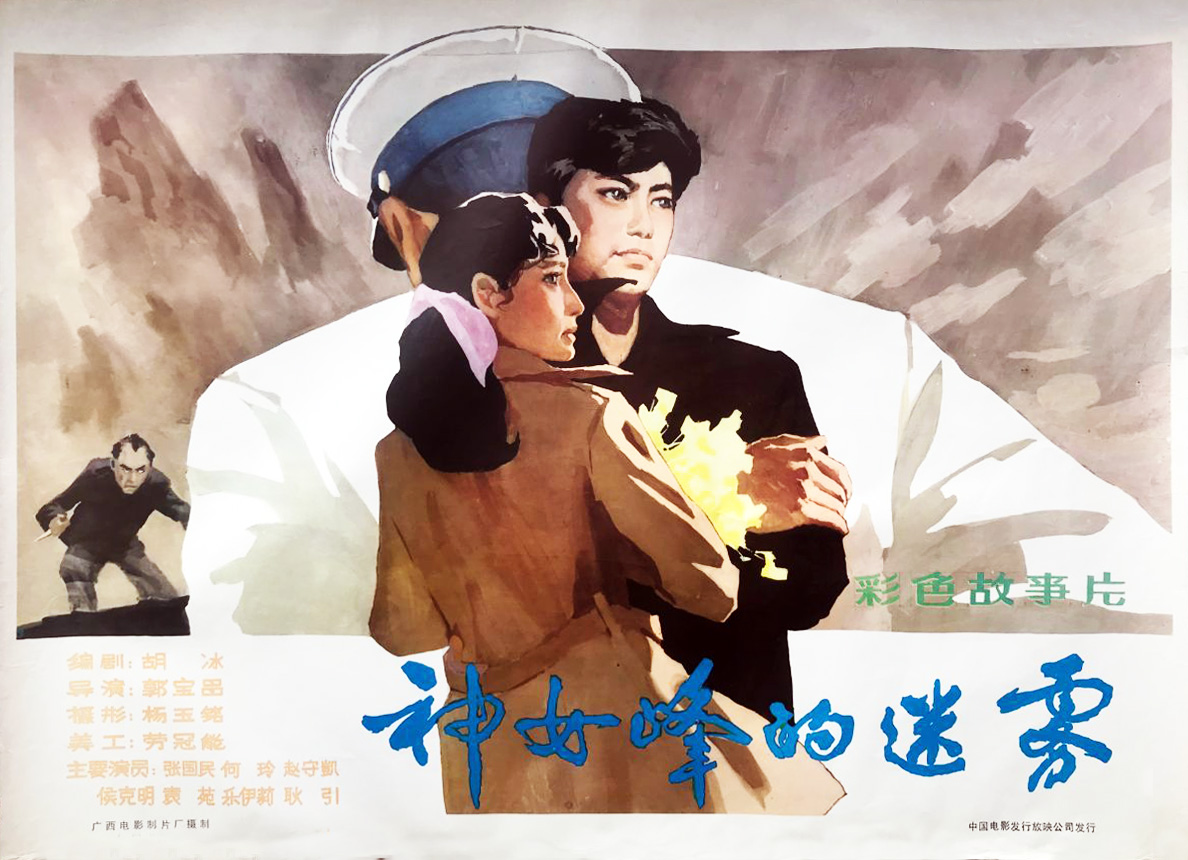
"The Mists of Goddess Peak" poster
In addition, since he experimented with commercial entertainment films in the 1980s, another prominent line in director Guo Baochang's resume is that he has constantly touched on dramatic elements and expressed opera feelings in his works: At the beginning of 1994, to commemorate the Hui Troupe's entry into Beijing In 2000, he filmed the opera TV series "The Big Boss Cheng Changgeng". It was also at the end of that year that he declined all film offers and started writing "The Mansion Gate" again. After the broadcast of "Mansion Gate" in 2001, he also directed the opera film "A Dream of a Boudoir". In an exclusive interview with the author, Guo Baochang said that his biggest wish now is to do more Peking operas and "confirm the theories in my book through my Peking opera works."
In that conversation, in order to supplement the description of his mentor Tian Feng in the book "All Big Characters", Baoye focused on the intersection and past between master and apprentice. Talking about the two people's experiences in special times, Mr. Bao couldn't help crying. At that time, he agreed to organize a drinking party someday, and Erguotou was heartbroken. Unfortunately, shortly after the interview, I heard that he had a serious illness and needed to rest, so he had to give up.
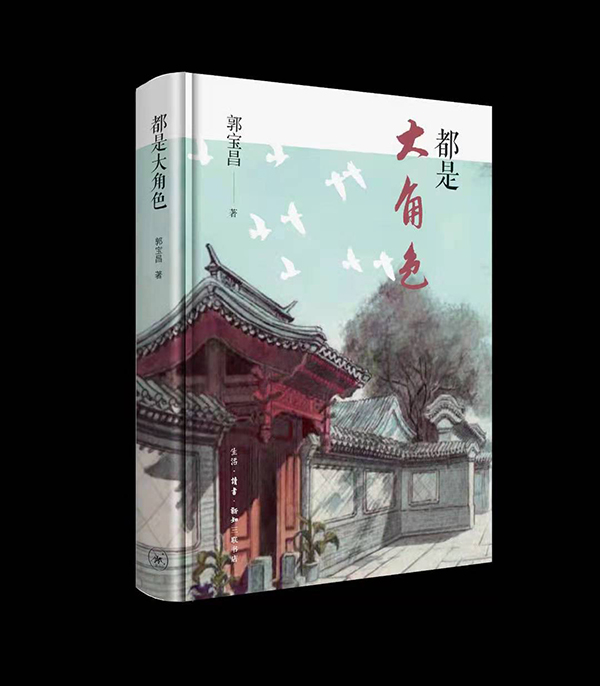
Book cover of "They Are All Big Characters"
The TV series "The Gate of the Mansion" made Guo Baochang famous at home. However, compared with the "complete version" written by him, it can be said that only half of the drama was filmed. The drama "The Gate of the Mansion" explains the ending of the drama. That night, I sent this emotion to Mr. Bao. Unexpectedly, he not only replied immediately, but also remembered "the wine" we had met... Perhaps, he also wanted to tell the story behind the mansion and talk about his thoughts in his later years. Here are my thoughts on Peking Opera.


